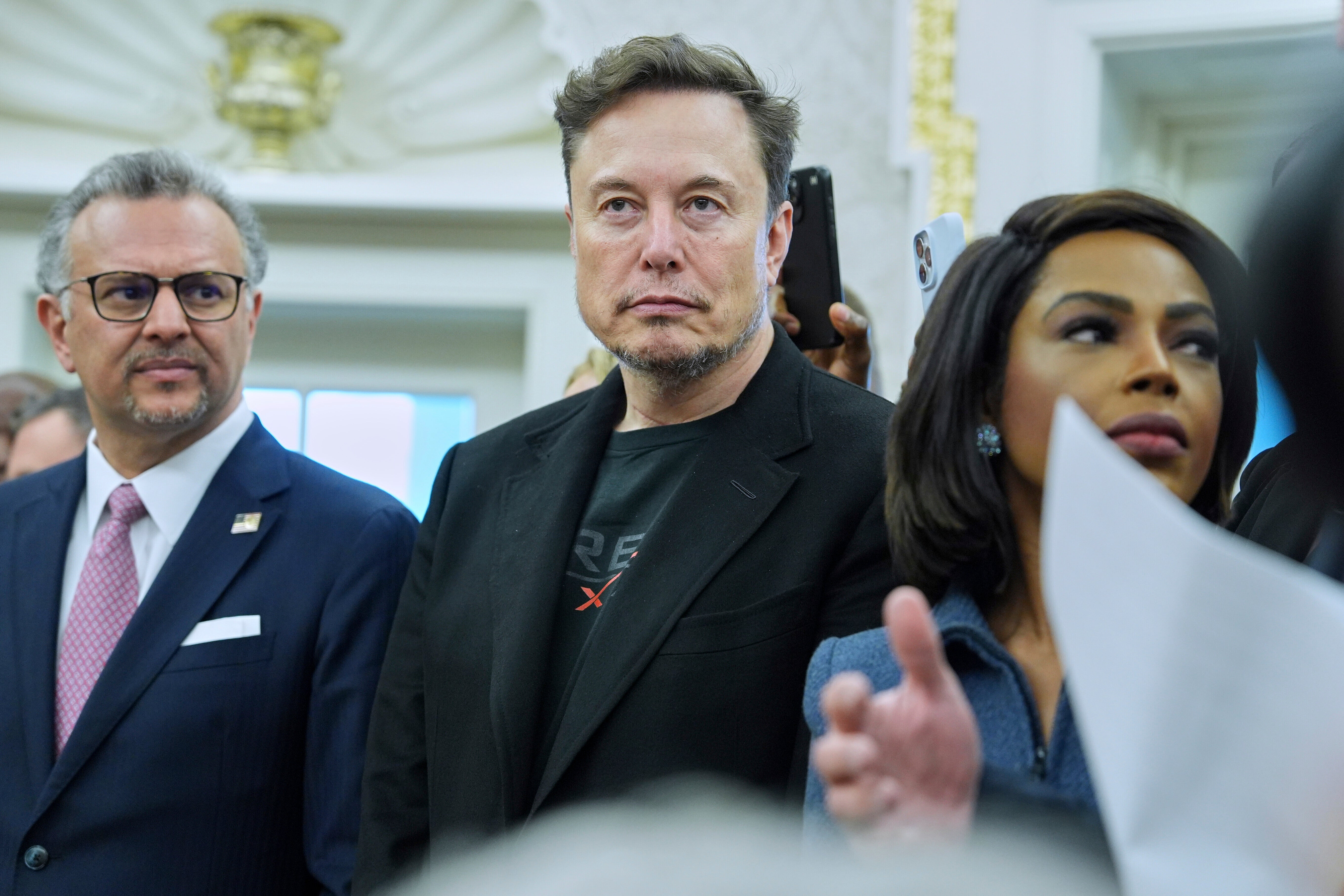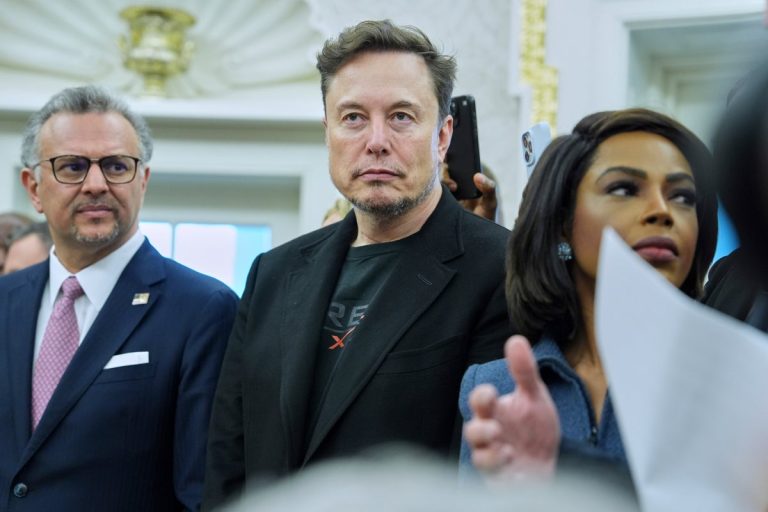Your support helps us to tell the story
From reproductive rights to climate change to Big Tech, The Independent is on the ground when the story is developing. Whether it’s investigating the financials of Elon Musk’s pro-Trump PAC or producing our latest documentary, ‘The A Word’, which shines a light on the American women fighting for reproductive rights, we know how important it is to parse out the facts from the messaging.
At such a critical moment in US history, we need reporters on the ground. Your donation allows us to keep sending journalists to speak to both sides of the story.
The Independent is trusted by Americans across the entire political spectrum. And unlike many other quality news outlets, we choose not to lock Americans out of our reporting and analysis with paywalls. We believe quality journalism should be available to everyone, paid for by those who can afford it.
Your support makes all the difference.
Read more
Elon Musk’s Department of Government Efficiency (DOGE) is reportedly set to expand the use of his Grok AI chatbot in the federal government despite conflict-of-interest concerns.
According to Reuters, the chatbot will be used to analyze data, which may put sensitive information regarding millions of Americans at risk. Privacy advocates are increasingly concerned about DOGE seeming to put aside established protections.
DOGE is using a customized version of Grok AI designed to go through data more efficiently.
“They ask questions, get it to prepare reports, give data analysis,” a person familiar with the matter told the news agency. Two others added that DOGE staff have told the Department of Homeland Security to use the chatbot, even though the chatbot hasn’t been approved for department use.
A DHS spokesperson told Reuters that DOGE staff hadn’t pushed DHS officials to use Grok.
“DOGE hasn’t pushed any employees to use any particular tools or products,” the spokesperson said. “DOGE is here to find and fight waste, fraud and abuse.”
Grok was developed by xAI, which was started by Musk in 2023, on the social media platform now called X that he purchased the previous year.
The effort may cross the legal threshold of security and privacy legislation if the data used by the chatbot is sensitive or confidential, five technology and government experts told Reuters.
It could make data available to Musk, the CEO of Tesla and SpaceX, regarding federal contracts at agencies where the billionaire conducts business privately. The experts noted that Musk could gain an unfair advantage over other AI service providers.
In its drive to eliminate fraud and waste, Musk and DOGE have accessed secure federal databases containing millions of Americans’ personal information. According to the experts, such information is usually only accessible by a small number of officials because of the risk that it may be sold, lost, leaked, violate people’s privacy, or expose the U.S. to security threats.

DOGE has been in charge of the removal of thousands of federal workers; they have taken control of sensitive data systems and taken steps to dismantle entire agencies.
The executive director of the privacy nonprofit Surveillance Technology Oversight Project, Albert Fox Cahn, told Reuters, “Given the scale of data that DOGE has amassed and given the numerous concerns of porting that data into software like Grok, this to me is about as serious a privacy threat as you get.”
During the Biden administration, new policies were created to allow federal workers to use some AI platforms, such as ChatGPT by OpenAI, the chatbot Claude developed by Anthropic, and an AI tool created by Grammarly.
The Department of Homeland Security also developed its own chatbot. The policy developed stated that workers could use the commercial tools for information that wasn’t sensitive or confidential. Meanwhile, the internal bot could be used for more sensitive information, according to records posted on the department’s site.
DHS officials shut down the use of all commercial AI tools earlier this month after workers were thought to be using them along with sensitive information, two sources told the news agency.
Last month, Musk said he would decrease his workload with DOGE to one or two days a week starting this month. He can only serve for 130 days in his current position as a special government employee. If he works part-time, he can extend his time with the government beyond May. However, Musk has said that DOGE’s work will continue even after his departure.
If Musk was party to decisions to use Grok, it may violate a conflict-of-interest law that prohibits officials from taking part in issues that can be to their financial benefit, former George W. Bush ethics counsel Richard Painter told Reuters.
“This gives the appearance that DOGE is pressuring agencies to use software to enrich Musk and xAI, and not to the benefit of the American people,” he said.

